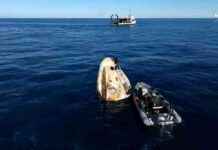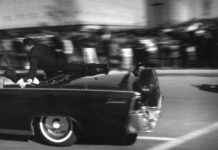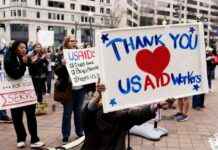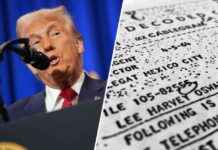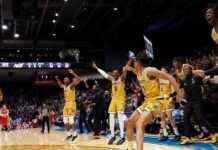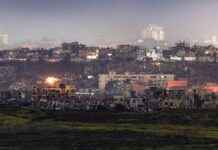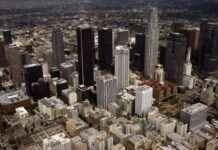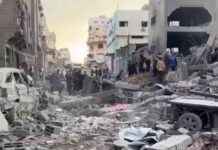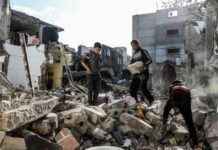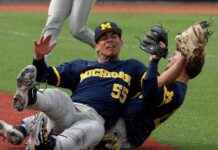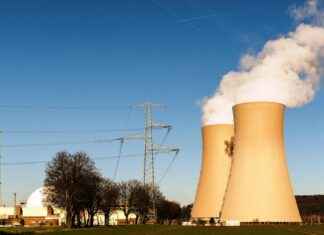In the last meeting he had with his contact, who did nothing but pull his tongue, there was a moment when he said enough, just when he asked him if he was still faithful to Havana. “Mate, that’s like questioning my manhood!” he exclaimed.
This is how Víctor Manuel Rocha, 73 years old, expressed himself on June 23. This Monday he could barely resist shedding tears, sitting on the defendant’s bench, as he watched his loved ones enter the Miami courtroom.
Judge Edwin G. Torres asked him if he understood the meaning of the charges. “I understand,” he replied.
Rocha, known simply as Manuel, a retired diplomat and former member of the US State Department, was arrested and charged with working as a spy for Cuba, boasting that his many years playing that dual role had served “to immensely strengthen the revolution”.
“This action exposes one of the most far-reaching and longest-lasting infiltrations of the United States Government by a foreign agent,” said Merrick B. Garland, attorney general of the United States (equivalent to the minister of Justice), in an appearance before the press.
“For more than 40 years, Víctor Manuel Rocha served as an agent of the Cuban government and sought and obtained positions within the United States government that would provide him access to non-public information and the ability to affect the foreign policy of our country,” he insisted. . “Falsely swearing allegiance to the United States while serving a foreign power is a crime to which the Department of Justice will respond in full force,” Garland promised.
That contact, supposedly a member of the Cuban intelligence service who made him talk too much, was, in truth, an FBI agent. The US Government had received a tip about Rocha’s hidden activities.
The prosecution indicated in the criminal complaint before the federal court in South Florida that the former diplomat “secretly assisted the Republic of Cuba with its clandestine intelligence gathering mission against the United States.” That task began in 1981 and there is evidence that, at least, he met with officials from that country’s main spy agency in 2017.
For a long time he was in charge of matters in the US executive related to Latin America in various positions in the State Department, as ambassador of Bolivia (2000-2002), and assignments in destinations in the embassy of the Dominican Republic, Mexico and Argentina. In more recent periods he served as an advisor to the US military command responsible for Cuba, among other areas.
Without ruling out even more accusations, pending analyzes on “the implications for national security,” he faces at least three charges: conspiracy to act as a foreign agent to defraud the United States, operating as an illegal agent for a foreign government and use of a passport obtained through falsehoods.
Prosecutor Jonathan D. Stratton requested that he be sentenced to prison without bail. He appealed to the risk of flight. Rocha, of Colombian origin, enjoys dual nationality and this increases the possibility of his escape, the accuser said. The defense attorney, Jacqueline Arango, stressed that her client will attend each and every one of the summonses in the event of being released on conditional release, an issue for which the judge called another hearing this Wednesday.
Rocha’s fall began in November 2022, based on what was reported in the complaint. The diplomat received a message on WhatsApp that triggered everything. “Good afternoon, ambassador. My name is Miguel and I have a message from his friends in Havana,” that contact wrote to him, who was actually an agent who was setting him up. According to the transcript, this alleged Cuban spy told him that the matter was about “a sensitive issue” and asked him to speak on the phone.
The diplomat replied that he didn’t really understand what he wanted but told him that he could call him. This led to three meetings, in which he established precautionary measures so that they would not be followed and chose areas shared by several restaurants so as not to be recorded. He was wrong. In these conversations, Rocha was proud of his collaboration with Cuba, “what we have done is enormous,” he stated. He praised the revolution, reverently extolled the figure of Fidel Castro or called the United States an “enemy.”
He maintained that, throughout his work, the issues that worried him most were those that could endanger the leaders or the revolution itself. “I have always worked little by little to infiltrate, meticulously,” he confessed to that contact.
He even claimed to have been behind the operation that allowed two small planes to be shot down, in apparent reference to two aircraft belonging to the organization called Brothers to the Rescue, a squadron of Cuban-American civil aviators who in the nineties of the last century opposed Castro and who Officially, they were carrying humanitarian aid. Those two demolitions left four dead.
That is until June 23, when his interlocutor got him mad and Rocha exploded. “I’m angry, I’m pissed, it’s like you want me to drop them… and show you if I have testicles,” he lamented.
The one who had fallen was him. He didn’t know it, but despite all the precautions, his voice and image had been recorded. The video is part of the criminal complaint. Rocha lost his virility.




